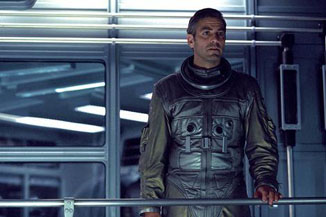|
|
Are You With Us?: SolarisBy Shalimar SahotaJuly 6, 2009
Similarities to other space sci-fi films are expected, though the best way to sum up Solaris would be as the intellectually grown-up Event Horizon, in that freaky stuff happens onboard a space station. However, the intention here isn't to make people jump. Solaris is a very big, "what if" scenario. What if this weird-looking purple planet you've been sent to study starts studying you instead? What if it has the power to read deep into your thoughts and memories, going so far as to create physical replications of people? Each crew member has their own "visitor", as they are known throughout the film, but what is the purpose of their appearance? And is this even a good thing? Clooney manages to convey a sense of utter dread and mystery, with Kelvin's first few minutes on board the space station being incredibly unsettling, even more so when he finally makes contact with someone. "I'm fine," he tells Snow, though obviously he doesn't look it. Of all things, Soderbergh has Riddle Box by the Insane Clown Posse playing in the background during this scene, whose lyrics act almost as a precursor to coming events. His meeting with Dr. Gordon is less helpful. "Until it starts happening to you," she says, "there's really no point in discussing it." When it does start happening, Kelvin's reaction to "Visitor Rheya" is astonishing, questioning her as if this has happened to him before.
[ View other Are You With Us columns ]
[ View other columns by Shalimar Sahota ]
[ Email this column ]
|

|
|
|

|
Friday, November 1, 2024
© 2024 Box Office Prophets, a division of One Of Us, Inc.


